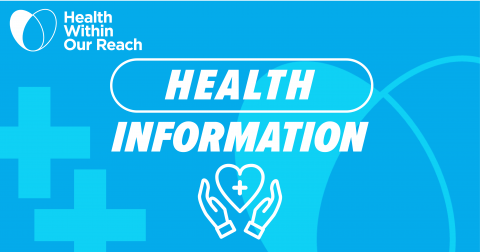April 17, 2023
Accessing Health Care in the United States: Low-cost or Free Health Insurance for Workers with H-2 Visas

Co-authored by the National Center for Farmworker Health and the Centro de los Derechos del Migrante Inc.
Health care is very important for all people, and if you are a migrant worker in the United States, accessing health care services can be complex and costly. Below, we share several health care options for workers in the United States on H-2A and H-2B visas.
Previously, we shared information about the importance of a safe and healthy workplace, and the protections that employers should guarantee their workers in the case that a worker is injured.
However, health risks are present in many different situations, not only in the workplace, as people may have pre-existing health conditions unrelated to their job or workplace. Even if you have access to worker’s compensation, we recommend you consider signing up for low-cost health insurance, as worker’s compensation only covers the cost of medical care if you get sick or injured on the job. Worker’s compensation does not cover treatment of illnesses or injuries that occur outside of the workplace.
Below are a few resources that you can leverage to access low-cost health insurance:
Low-cost health insurance through the Affordable Care Act (ACA) Marketplace
People with H-2A and H-2B visas qualify for private insurance through the Marketplace if their employers do not offer them access to health insurance. A law, known as the Affordable Care Act (ACA), allows for access to health insurance for low-wage workers. The majority of the plans do have a cost, but they are calculated based on each individual person’s economic situation. In order to access and sign up for this option, you will need to have the following information:
Most recent tax return or W-2 form
I-94 Entry/Exit card
H-2A or H-2B visa
Name and address of your current employer
In some cases, H-2 visa holders are eligible for financial aid in tax credits if earnings are below the poverty line in the United States. In some cases, the tax credits could fully cover the cost of insurance.
Please keep in mind that open enrollment begins on November 1 and ends on January 15 of each year. However, since H-2 visa holders arrive at different times of the year, they are able to enroll within the first 60 days of arrival to the United States.
Note: The insurance only covers the worker while they are in the United States. It is important to cancel the insurance when the work contract ends.
We suggest the following if you are interested in low-cost health insurance options:
a. Learn about the coverage each insurance provides:
The United States has low-cost health care coverage that varies according to the type of services you are interested in having. You can choose the plan that best suits you. Most H-2A workers pay less than $25 a month for health insurance.
b. Learn about additional regulations enforced by the state in which you live:
Health care options can vary depending on the state where you are living and working. Some states even have tax penalties if you do not have health insurance.
c. Contact a health care expert to help you identify the best health care coverage for you. There are organizations, clinics and health centers that can help you through this process:
Each person has distinct health needs, so it is important to contact the experts to help you make an informed decision about a health care plan that is right for you and to clarify any questions or doubts. You can call 1-800-318-2596 to speak with a specialist or visit https://www.healthcare.gov/. If you are currently living in North Carolina, you can go to NCNavigator.net for more information.
Free or low-cost health clinics: Health clinics are aviable to all regardless of inmigration status or health insurance. Discounts are available for emergencies or for routine services, but final costs will vary. Find a health clinic near you: https://nafcclinics.org/find-clinic
Health clinics for migrants: You can find free or low-cost health clinics aimed towards the migrant population on this map. All you need to do is enter the zip code and state of where you are living: http://www.ncfh.org/migrant-health-centers.html (in English only)
Emergency services: If a person is in need of emergency medical services in the United States, hospitals and 911 emergency lines must attend the person regardless of whether they have health insurance or not. Final costs will vary depending on the type of emergency medical services provided. Free emergency medical attention is not guaranteed, but you can seek financial support.
Free help line for H–2A agricultural workers: Contact Call for Health (Una Voz para la Salud) by phone (+1 800 377 9968) or WhatsApp (+1 737 414 5121).
Protecting your health is very important.
To find out more information regarding health care and labor rights, visit covid-chat.org.
You can also call Centro de los Derechos del Migrante (CDM):
- From the United States: 1 855 234 9699
- From Mexico: 800 590 1773
Sources:
National Center for Farmworker Health (NCFH): Supporting H-2A Workers' Access to Health Care:
Farmworker Justice:
